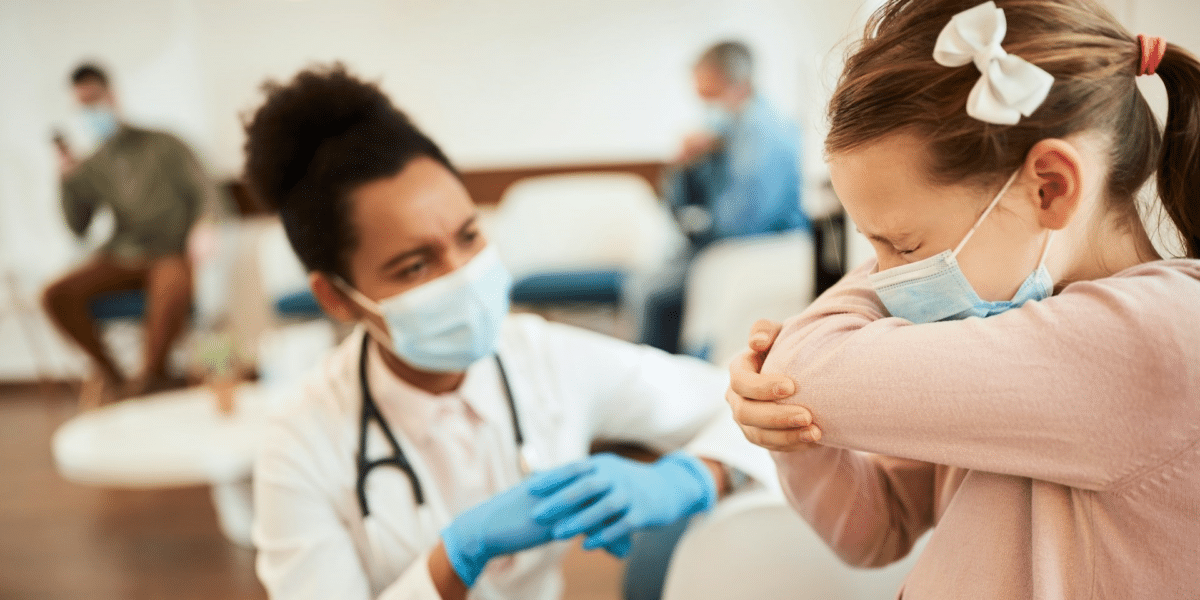How to Minimize the Cough Surge in Virginia

To reduce the cough surge in Virginia, public health campaigns are crucial for educating people about respiratory health. Teaching cough etiquette, such as covering your mouth with a tissue or elbow, plays a vital role in preventing the spread of illnesses. Moreover, raising awareness about preventive measures like flu and COVID-19 vaccinations can significantly lower the incidence of cough-related illnesses. These campaigns should target schools, workplaces, and public spaces, ensuring that health messages reach a wide audience, encouraging better health practices across the state.
Public health authorities should also collaborate with local organizations to make these campaigns more effective. Hosting community workshops and providing educational materials in different languages can further improve the dissemination of essential health knowledge. Incorporating lessons on respiratory health into school curriculums will ensure that younger generations adopt these habits early, promoting a healthier future.
Environmental Factors
Improving air quality is another key strategy in minimizing the cough surge. By targeting pollution sources and reducing allergens and particulates, the environment becomes less irritating for those with respiratory sensitivities. Air quality monitoring and enforcing environmental regulations are essential to keeping the air clean. Meanwhile, using humidifiers in homes and public places can help maintain the appropriate indoor air moisture, preventing dry air that can trigger coughs and respiratory discomfort.
To enhance environmental safety, cleaning and sanitation practices should be elevated, particularly in public spaces such as schools, offices, and transportation systems. Regular disinfection of frequently touched surfaces reduces the transmission of airborne germs, keeping indoor environments healthier for everyone.
Healthcare Access and Interventions
Improving healthcare access is critical in reducing the cough surge. Early detection of respiratory conditions through regular check-ups allows for timely treatment before symptoms escalate. Ensuring widespread availability of telemedicine services can further enhance access, offering patients the convenience of remote consultations, particularly for minor respiratory complaints that do not necessitate an in-person visit.
Additionally, educating both the public and healthcare professionals on the appropriate use of antivirals and antibiotics ensures that medications are used effectively. Avoiding unnecessary use of antibiotics is key in preventing resistance, which could exacerbate future public health crises.
Community-Level Initiatives
Community-based actions can significantly reduce the spread of respiratory illnesses. Workplaces can establish flexible sick leave policies and encourage employees to work from home when symptomatic. This prevents illness from spreading among colleagues and promotes a healthier work environment. In schools and childcare centers, implementing regular health monitoring, hand hygiene protocols, and enhanced cleaning of shared surfaces can help protect children and staff.
In public transportation, which often serves as a transmission vector, improved hygiene measures—such as increased cleaning frequencies—are essential. Public transport operators should install hand sanitizers and encourage mask use during high transmission seasons, reducing the risk of contagion for commuters.
Lifestyle and Personal Habits
Individuals can adopt healthy lifestyle habits to minimize the likelihood of respiratory illnesses. Promoting good hygiene practices, including regular handwashing and the use of hand sanitizers, helps prevent the spread of infections. A healthy lifestyle that includes regular physical activity, proper nutrition, and adequate hydration strengthens the immune system, making individuals more resilient to respiratory illnesses.
Efforts to promote smoking cessation can also have a significant impact. Smoking weakens lung function and increases susceptibility to respiratory infections. Public health campaigns and access to smoking cessation programs can help reduce the prevalence of smoking-related coughs and improve overall respiratory health.
Government and Policy Measures
State-level government policies are crucial in addressing the cough surge. Allocating public health funding for awareness campaigns and preventive measures is necessary for comprehensive state-wide interventions. Moreover, enforcing air quality regulations can drastically improve respiratory health by reducing pollution levels and ensuring cleaner air for residents.
The government should also implement emergency preparedness protocols to handle spikes in respiratory illnesses, ensuring that healthcare facilities are equipped to manage increased patient loads. This includes maintaining adequate supplies of medical equipment and medications, as well as training healthcare professionals to respond effectively to respiratory health crises.
Seasonal and Viral Prevention
During the flu and cold seasons, seasonal prevention efforts become even more important. Providing easy access to flu and cold vaccines, particularly through free or low-cost programs, can significantly reduce the incidence of seasonal respiratory illnesses. These efforts should target at-risk populations, such as the elderly, children, and those with preexisting conditions.
Promoting the use of personal protective equipment (PPE) like masks in crowded or high-risk environments during peak transmission seasons can also help control the spread of infections. Moreover, implementing social distancing guidelines during peak seasons, particularly in public areas like shopping centers and public transport, can further reduce the spread of respiratory illnesses.
Minimizing the cough surge in Virginia requires a multifaceted approach, combining public health education, environmental improvements, accessible healthcare, and community initiatives. Government action, alongside personal and community-level efforts, can help mitigate the spread of respiratory illnesses. By prioritizing public awareness, air quality improvements, and preventive healthcare, Virginia can reduce the number of cough-related cases and promote healthier living for all residents.

